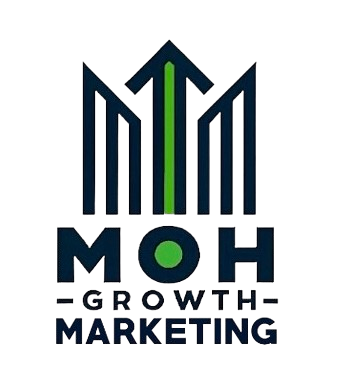Google Ads vs. Facebook Ads in 2025: Why AI is Ending the "Either/Or" Battle
Intro
The age-old marketing debate just got a lot more interesting. For years, businesses have been forced to choose sides: Google Ads for high-intent customers ready to buy, or Facebook Ads for building brand awareness and nurturing prospects.
But in 2025, artificial intelligence is rewriting the rules, making both platforms so much smarter that the real question isn't which one to pick—it's how to use them together.
Google Ads: The AI-Powered Conversion Machine
Think of Google Ads as your digital storefront on the world's busiest street. When someone searches for exactly what you sell, Google's AI now steps in like an expert salesperson who never sleeps.
AI Max for Search automatically creates and optimizes ads based on your website content, finding customers you never thought to target. Instead of spending hours researching keywords, the AI identifies emerging search trends and long-tail queries that traditional keyword research might miss.
Meanwhile, Smart Bidding uses machine learning to adjust your bids in real-time for every single search. It's like having a negotiation expert who knows exactly how much each potential customer is worth, factoring in their search history, device, location, and dozens of other signals to maximize your return on investment.
The results speak for themselves: analysis of over $50 million in 2025 ad spend shows Google Ads delivering 20-30% higher ROI for high-intent search campaigns compared to previous years.
Facebook Ads: AI-Driven Brand Building Gets Smarter
Facebook Ads, on the other hand, is like having a conversation at a party where you can magically know exactly what interests each person. The platform's AI has become incredibly sophisticated at finding your ideal customers even when they're not actively shopping.
Advantage+ campaigns use predictive targeting to identify users who look and behave like your best customers, expanding your reach to people you might never have found through traditional demographic targeting. The AI continuously tests different ad variations—images, headlines, calls-to-action—automatically showing each person the version most likely to resonate with them.
For brand awareness campaigns, Facebook's AI is 40% more cost-efficient than traditional approaches, building relationships and nurturing prospects who aren't ready to buy today but might be tomorrow.
The AI Revolution: Why You Don't Have to Choose Anymore
Here's where it gets exciting: AI is making the Google vs. Facebook debate obsolete. Both platforms now use sophisticated machine learning to handle tasks that used to require hours of manual work. Think bid optimization, audience targeting, creative testing, and performance analysis.
Google's AI excels at capturing demand when people are actively searching with purchase intent. Facebook's AI excels at creating demand by reaching people in their daily social browsing when they're open to discovering new brands and ideas.
Smart businesses in 2025 are using both platforms strategically: Facebook Ads to build brand awareness and nurture prospects higher in the funnel, then Google Ads to capture those same people when they're ready to search and buy. The AI on both platforms now makes this coordination seamless and profitable.
What This Means for Your Business
Stop thinking "either/or" and start thinking "both." The most successful companies are leveraging each platform's AI-driven strengths together rather than picking sides. Google Ads handles your high-intent, ready-to-convert traffic, while Facebook Ads builds the awareness and consideration that feeds that pipeline.
The key is understanding that AI has made both platforms more efficient and effective than ever—but they still serve different purposes in your customer's journey from stranger to buyer.
Key Takeaway
In 2025, AI has made both Google Ads and Facebook Ads incredibly powerful, but for different reasons. The winning strategy isn't choosing one over the other; it's using both platforms' AI capabilities to cover the complete customer journey from awareness to conversion.
